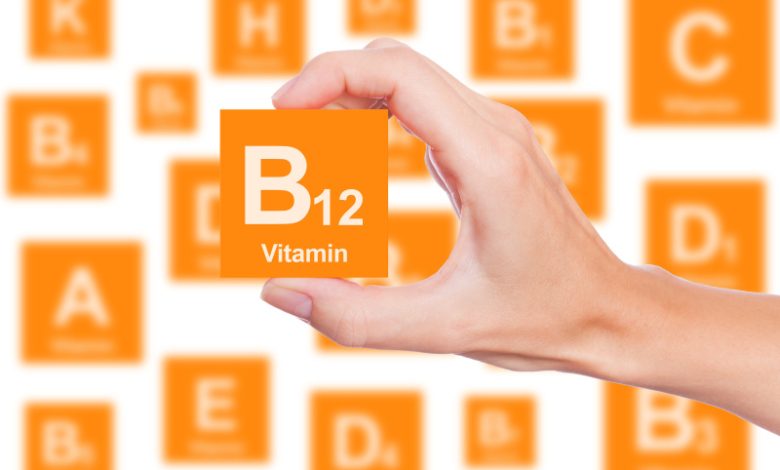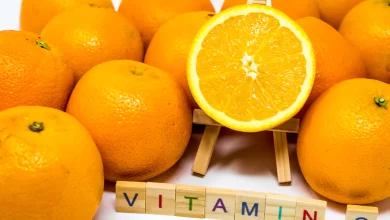Vitamin B12 Supplements: Miracle Boost or Overhyped Trend?

In today’s fast-paced life, good health is essential. Among various vitamins, vitamin B12 has received increasing attention in recent years. From celebrity endorsements to trending TikTok videos, B12 supplements are praised as energy boosters, brain enhancers, and even mood stabilizers. They are easily available in health food stores and clinics, as their need is being felt more and more in everyday life.
But behind the hype lies an important question: Is this truly an effective vitamin, or just a new way to make money? Or is it simply another wellness trend driven more by marketing than by science?
Let’s explore the science, benefits, myths, and realities of vitamin B12 supplementation — to understand whether it’s genuinely effective, can improve our lives, and is worth making part of our daily routine.
What is Vitamin B12?
Vitamin B12, also known as cobalamin, is a water-soluble vitamin essential for many functions in the body. Unlike some vitamins, B12 cannot be made by the human body; it must be obtained from food or supplements.
Key roles of Vitamin B12:
- Red Blood Cell Formation – B12 helps produce healthy red blood cells. Without it, you may develop megaloblastic anemia, a condition that leaves you tired and weak.
- DNA Synthesis – B12 is necessary for making and repairing DNA, the genetic material in every cell.
- Nervous System Health – It helps maintain the protective myelin sheath around nerves, enabling smooth nerve signal transmission.
- Energy Metabolism – B12 helps convert food into glucose, which fuels your body.
- Brain Function – B12 plays a role in neurotransmitter production, affecting mood, memory, and cognitive performance.
Why the Sudden Popularity of B12 Supplements?
While B12 has always been essential, its popularity surged in the last decade due to several factors:
- Vegan and Plant-Based Diets: Since natural B12 is primarily found in animal products, more people following vegan or vegetarian diets are at risk of deficiency.
- Awareness Campaigns: Social media and wellness influencers have spotlighted B12’s link to energy and mood.
- Aging Population: Older adults have a reduced ability to absorb B12 from food due to lower stomach acid production.
- Biohacking Culture: People looking for quick boosts in productivity and mental clarity often experiment with supplements like B12.
Signs and Symptoms of Vitamin B12 Deficiency
Deficiency can develop gradually, making it easy to overlook until symptoms become more serious.
Early Symptoms:
- Fatigue and weakness
- Lightheadedness
- Pale skin
- Tingling in hands and feet (paresthesia)
Advanced Symptoms:
- Memory loss
- Difficulty concentrating
- Mood changes, including depression
- Difficulty walking or balance problems
- Shortness of breath
Who is at Risk of Vitamin B12 Deficiency?
You may need to be extra mindful of B12 intake if you fall into one of these categories:
- Vegans and Vegetarians – Plant foods generally lack natural B12.
- Adults over 50 – Stomach acid, essential for B12 absorption, decreases with age.
- People with Digestive Disorders – Conditions like Crohn’s disease, celiac disease, or pernicious anemia can interfere with absorption.
- Bariatric Surgery Patients – Weight-loss surgeries can reduce the stomach’s ability to absorb B12.
- Long-Term Use of Certain Medications – Drugs like metformin (for diabetes) and proton pump inhibitors (for acid reflux) can reduce absorption over time.
- Pregnant or Breastfeeding Vegans – Infants rely on maternal B12 supply for development.
Sources of Vitamin B12
Natural Food Sources:
- Beef liver (one of the richest sources)
- Fish (salmon, tuna, trout)
- Meat (beef, chicken)
- Dairy products (milk, yogurt, cheese)
- Eggs
Fortified Foods:
- Breakfast cereals
- Plant-based milks (soy, almond, oat)
- Nutritional yeast
Forms of B12 Supplements
If you can’t get enough from diet alone, supplements are available in several forms:
- Cyanocobalamin – Synthetic form, inexpensive, widely used.
- Methylcobalamin – Naturally occurring form, often marketed as more bioavailable.
- Hydroxocobalamin – Used in injections, longer-lasting in the body.
- Adenosylcobalamin – Active form found in mitochondria, less common in supplements.
Delivery Methods:
- Tablets and Capsules – Easy to take daily.
- Sublingual (under the tongue) – Claimed to improve absorption.
- Nasal Sprays – Convenient for people who dislike pills.
- Injections – Used in medical settings for severe deficiencies.
Health Benefits of Vitamin B12 Supplements
1. Energy Boost
B12 plays a key role in energy metabolism, so deficiency can cause fatigue. Supplementation may restore energy levels in deficient individuals. However, if you already have adequate B12, taking more won’t necessarily make you more energetic.
2. Improved Mood and Mental Health
B12 helps regulate mood-related neurotransmitters like serotonin and dopamine. Low levels have been linked to depression and anxiety. Some studies suggest supplementation may improve mood—especially in those with low B12 levels.
3. Brain Function and Memory
Adequate B12 is associated with better cognitive performance, particularly in older adults. Deficiency may contribute to brain atrophy and memory loss.
4. Healthy Pregnancy
B12 supports fetal brain and nervous system development. Deficiency during pregnancy can increase the risk of birth defects.
5. Heart Health
B12 helps reduce homocysteine levels, an amino acid linked to heart disease risk when elevated.
The Myths and the Hype
With popularity comes misinformation. Let’s separate fact from fiction.
Myth #1: B12 supplements give you instant energy even if you’re not deficient.
Reality: If your B12 levels are already normal, extra B12 won’t act like caffeine. The energy boost mostly happens in deficient individuals.
Myth #2: B12 injections are always better than pills.
Reality: Injections are necessary for certain absorption issues, but oral forms work perfectly well for most people.
Myth #3: B12 can help you lose weight.
Reality: While deficiency can cause fatigue that might hinder activity, B12 itself isn’t a fat burner.
Myth #4: Only vegans need B12 supplements.
Reality: Older adults, people with absorption issues, and those on certain medications may also need supplementation.
Possible Side Effects and Safety
The good news: B12 is generally safe. It’s water-soluble, meaning excess amounts are excreted in urine rather than stored in the body.
Possible mild side effects:
- Nausea
- Diarrhea
- Headache
- Skin rash
Severe side effects are rare, but people with certain conditions (like Leber’s disease, a rare genetic eye disorder) should avoid high doses.
How Much B12 Do You Really Need?
The Recommended Dietary Allowance (RDA) for B12 is:
- Adults: 2.4 micrograms/day
- Pregnant women: 2.6 mcg/day
- Breastfeeding women: 2.8 mcg/day
Deficiency treatment often requires much higher doses initially—sometimes up to 1,000 mcg daily—under medical supervision.
When to Consider Testing Your B12 Levels
Blood tests can confirm deficiency. Normal blood levels are generally between 200–900 pg/mL. Symptoms plus a low reading usually prompt supplementation.
You might want testing if you:
- Experience chronic fatigue
- Follow a vegan diet
- Have digestive issues
- Are over 50 years old
- Take long-term medications that affect absorption
B12 in the Context of Overall Health
While B12 is essential, it’s not a magic bullet. True energy, cognitive health, and mood stability come from a combination of:
- Balanced diet
- Regular exercise
- Adequate sleep
- Stress management
- Other nutrients like iron, folate, and vitamin D
Final Verdict: Miracle Boost or Overhyped Trend?
The answer lies somewhere in between. For those with a deficiency—or in high-risk groups—B12 supplements can be genuinely life-changing, restoring energy, improving mood, and preventing serious neurological issues.
However, for people who already meet their daily needs through diet, mega-dosing on B12 is unlikely to provide extra benefits. The “miracle” reputation is largely due to genuine health improvements in deficient individuals and the marketing appeal of quick-fix solutions.




